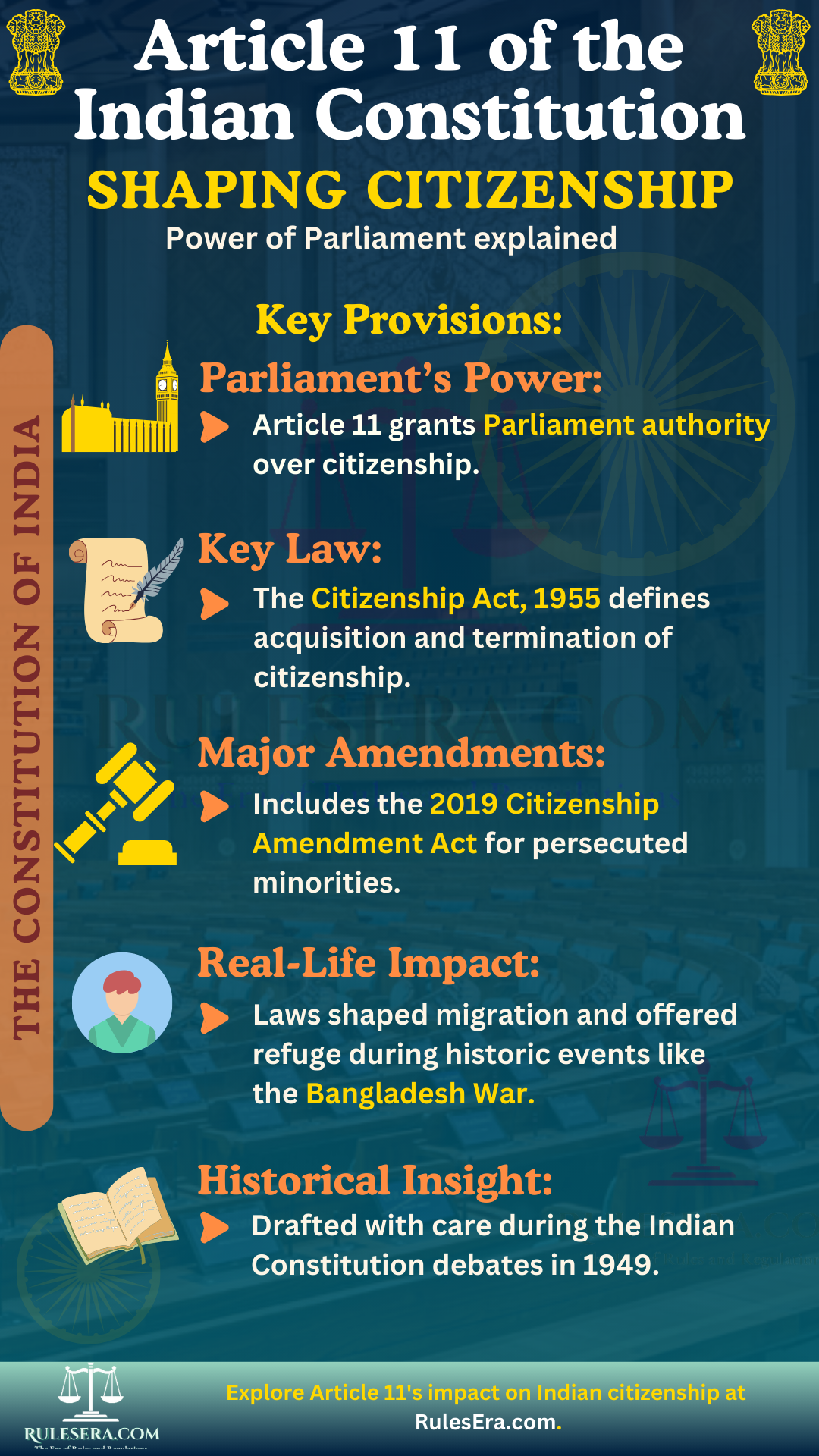Article 11: Parliament to Regulate the Right of Citizenship by Law

Nothing in the foregoing provisions of this Part shall derogate from the power of Parliament to make any provision with respect to the acquisition and termination of citizenship and all other matters relating to citizenship.
Explanation
Article 11 grants exclusive authority to Parliament to legislate on all matters concerning citizenship. This enables Parliament to go beyond the guidelines established in Articles 5 to 10, making citizenship laws adaptable to changing national needs.
Legislative Power of Parliament
The primary role of Article 11 is to give Parliament full control over citizenship legislation. Parliament can amend or create new laws that govern the acquisition, retention, or termination of citizenship in India.
Laws Governing Citizenship
Article 11 led to the Citizenship Act of 1955, which details procedures for acquiring, renouncing, or losing citizenship. This Act has been amended to address various concerns, such as the 2003 introduction of Overseas Citizenship of India (OCI) and the 2019 Citizenship (Amendment) Act.
Real-World Applications
For example, in 2015, legislation was passed to regularize the status of Bangladeshi immigrants who entered India before 1971. Similarly, the 2019 Amendment provided a streamlined citizenship process for persecuted minorities from neighboring countries.
Frequently Asked Questions (FAQs):
Article 11 gives Parliament full authority to regulate, amend, or enact laws regarding all aspects of citizenship, including acquisition and termination.
Parliament enacted the Citizenship Act of 1955 and has amended it to address changing needs, including the introduction of Overseas Citizenship of India (OCI) in 2003 and the Citizenship (Amendment) Act in 2019.
Article 11 allows Parliament to legislate on citizenship matters beyond the provisions in Articles 5 to 10, but all laws remain subject to constitutional principles and judicial review.